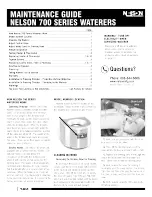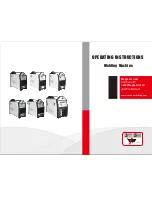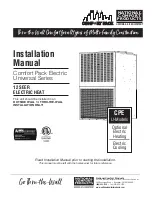
As soon as the arc is established, maintain a 1.6mm to 3.2mm gap between the burning electrode end
and the parent metal. Draw the electrode slowly along as it melts down. The securing of an arc length
necessary to produce a neat weld soon becomes almost automa c. You will find that a long arc produces
more heat.
A very long arc produces a crackling or splu ering noise and the weld metal comes across in large,
irregular blobs. The weld bead is fla ened and spa er increases. A short arc is essen al if a high quality
weld is to be obtained although if it is too short there is the danger of it being blanketed by slag and the
electrode p being solidified in. If this should happen, give the electrode a quick twist back over the
weld to detach it.
A er the arc is struck, your next concern is to maintain it, and this requires moving the electrode p
towards the molten pool at the same rate as it is mel ng away. At the same me, the electrode has to
move along the plate to form a bead.
The electrode is directed at the weld pool at about 20º from the ver cal. The rate of travel has to be
adjusted so that a well-formed bead is produced.
If the travel is too fast, the bead will be narrow and strung out and may even be broken up into individual
globules. If the travel is too slow, the weld metal piles up and the bead will be too large.
6.7.4 Arc Length
6.7.5 Rate of Travel
26
www.strata.co.nz
EZIMIG185C
Summary of Contents for EZIMIG185C
Page 12: ...Figure 33 Figure 34 Figure 35 Figure 36 11 www strata co nz EZIMIG185C ...
Page 43: ...9 3 Electrical schematic drawing 42 www strata co nz EZIMIG185C ...
Page 45: ...44 www strata co nz EZIMIG185C ...
Page 46: ...45 www strata co nz EZIMIG185C ...
















































